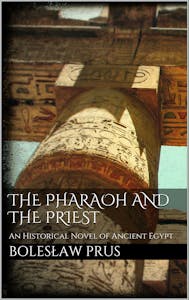The position of Ancient Egypt was unique, not in one, but in every sense. To begin at the very foundation of life in that country, we find that the soil was unlike any other on earth in its origin. Every acre of fruitful land between the first cataract and the sea had been brought from Inner Africa, and each year additions were made to it. Out of this mud, borne down thousands of miles from the great fertile uplands of Abyssinia by rivers, grew everything needed to feed and clothe man and nourish animals. Out of it also was made the brick from which walls, houses, and buildings of various uses and kinds were constructed. Though this soil of the country was rich, it could be utilized only by the unceasing co-ordinate efforts of a whole population constrained and directed. To direct and constrain was the task of the priests and the pharaohs.
Never have men worked in company so long and successfully at tilling the earth as the Egyptians, and never has the return been so continuous and abundant from land as in their case.
The Nile valley furnished grain to all markets accessible by water; hence Rome, Greece, and Judaea ate the bread of Egypt. On this national tillage was founded the greatness of the country, for from it came the means to execute other works, and in it began that toil, training, and skill indispensable in rearing the monuments and doing those things which have made Egypt famous forever, and preserved to us a knowledge of the language, religion, modes of living, and history of that wonderful people who held the Nile valley.
